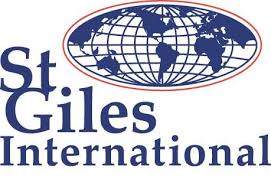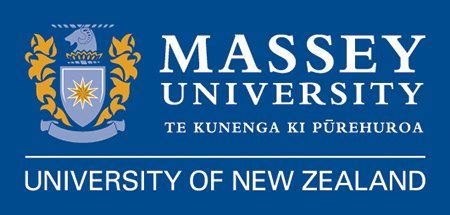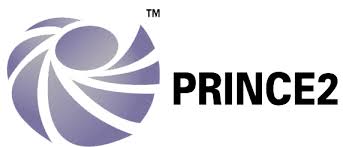
Leadership for Senior Executives (LSE) Outlines
Course ID: 2508040101538ESH
Course Dates : 04/08/25 Course Duration : 10 Studying Day/s Course Location: London, UK
Language: Bilingual
Course Category: Professional and CPD Training Programs
Course Subcategories: Leadership and Management Excellence
Course Information
Introduction
The role of senior executives has evolved significantly in recent decades, shifting from traditional management duties to strategic leadership that drives organizational transformation and innovation. As organizations navigate increasingly complex global markets, technological disruptions, and shifting workforce dynamics, the demand for advanced leadership skills has become paramount. Leadership is no longer confined to guiding teams or overseeing operations; it encompasses the ability to inspire vision, foster collaboration, and make decisions that align with both ethical principles and business imperatives. This course, "Leadership for Senior Executives," is designed to equip leaders with the tools, frameworks, and insights necessary to excel in such an environment.
One of the most pressing challenges faced by senior executives today is the gap between theoretical leadership concepts and their practical application in real-world scenarios. While many leaders possess technical expertise and industry knowledge, they often struggle to translate these competencies into effective leadership practices. For instance, a study by the Harvard Business Review highlights that nearly 60% of executives report feeling unprepared to handle the complexities of modern leadership roles. This course addresses this gap by blending cutting-edge research with hands-on case studies, ensuring participants can immediately apply what they learn to their professional contexts.
Consider the example of Satya Nadella, CEO of Microsoft, whose transformational leadership style revitalized the company’s culture and market position. By fostering a growth mindset and prioritizing inclusivity, Nadella demonstrated how leadership can drive tangible results. The course draws upon such examples to illustrate the impact of adaptive leadership strategies. Participants will explore frameworks like Daniel Goleman’s Emotional Intelligence model and John Kotter’s Change Management Theory, which provide foundational principles for understanding leadership dynamics in diverse settings.
Organizations stand to gain immensely when their leaders are equipped with advanced competencies. Research shows that companies led by strong, visionary executives outperform their peers by up to 15% in profitability. On an individual level, mastering leadership skills enhances career prospects, boosts confidence, and fosters resilience in high-pressure environments. Moreover, as industries continue to grapple with issues such as sustainability, diversity, and digital transformation, leaders who can navigate these challenges effectively are invaluable assets.
This course also addresses emerging trends in leadership, such as remote team management, cross-cultural communication, and stakeholder engagement. With hybrid work models becoming the norm, executives must adapt their leadership styles to ensure productivity and cohesion across geographically dispersed teams. A case in point is Salesforce, which successfully transitioned to remote work during the pandemic by leveraging transparent communication and employee-centric policies. By examining such examples, participants will develop strategies to lead effectively in any organizational structure.
Ultimately, "Leadership for Senior Executives" is not just about acquiring new skills—it’s about redefining what it means to lead in the 21st century. Through rigorous training, interactive discussions, and actionable insights, this course empowers participants to become catalysts for change within their organizations. Whether you’re steering a multinational corporation or guiding a small startup, the lessons learned here will serve as a blueprint for sustained success.
Objectives
By attending this course, participants will be able to:
Analyze key leadership theories and frameworks to identify strategies applicable to their organizational context.
Evaluate the impact of emotional intelligence on team performance and implement techniques to enhance interpersonal relationships.
Design innovative solutions to address complex organizational challenges using systems thinking approaches.
Apply change management principles to lead successful transformations within their teams or departments.
Implement best practices for stakeholder engagement and cross-functional collaboration.
Assess the role of ethics and corporate social responsibility in decision-making processes.
Develop personalized leadership development plans aligned with long-term career goals.
Who Should Attend?
This course is ideal for:
Senior executives, directors, and C-suite professionals seeking to refine their leadership capabilities.
Managers aspiring to move into higher-level leadership roles and requiring advanced skill sets.
Consultants and advisors working with organizations to improve leadership effectiveness.
HR leaders tasked with designing leadership development programs for their companies.
These groups will find the course valuable because it bridges the gap between academic theory and practical application, offering actionable strategies tailored to senior-level challenges. Participants should have prior experience in leadership roles, making this course suitable for intermediate to advanced practitioners.
Training Method
• Pre-assessment
• Live group instruction
• Use of real-world examples, case studies and exercises
• Interactive participation and discussion
• Power point presentation, LCD and flip chart
• Group activities and tests
• Each participant receives a 7” Tablet containing a copy of the presentation, slides and handouts
• Post-assessment
Program Support
This program is supported by:
* Interactive discussions
* Role-play
* Case studies and highlight the techniques available to the participants.
Daily Agenda
Daily Schedule (Monday to Friday)
- 09:00 AM – 10:30 AM Technical Session 1
- 10:30 AM – 12:00 PM Technical Session 2
- 12:00 PM – 01:00 PM Technical Session 3
- 01:00 PM – 02:00 PM Lunch Break (If Applicable)
- Participants are expected to engage in guided self-study, reading, or personal reflection on the day’s content. This contributes toward the CPD accreditation and deepens conceptual understanding.
- 02:00 PM – 04:00 PM Self-Study & Reflection
Please Note:
- All training sessions are conducted from Monday to Friday, following the standard working week observed in the United Kingdom and European Union. Saturday and Sunday are official weekends and are not counted as part of the course duration.
- Coffee and refreshments are available on a floating basis throughout the morning. Participants may help themselves at their convenience to ensure an uninterrupted learning experience Provided if applicable and subject to course delivery arrangements.
- Lunch Provided if applicable and subject to course delivery arrangements.
Course Outlines
Foundations of Leadership
* Introduction to leadership paradigms and their evolution.
* Understanding situational leadership and its applications.
* Overview of emotional intelligence (EI) and its impact on leadership.
* Case study: Transformational leadership at Apple Inc.
Day 2:
Emotional Intelligence & Team Dynamics
* The science behind EI: Self-awareness and self-regulation.
* Building trust and psychological safety in teams.
* Conflict resolution strategies for leaders.
* Group activity: Role-playing conflict scenarios.
Day 3:
Strategic Thinking & Decision-Making
* Frameworks for strategic analysis (SWOT, PESTLE).
* Cognitive biases in decision-making and how to mitigate them.
* Balancing short-term priorities with long-term vision.
* Interactive session: Simulated crisis management exercise.
Day 4:
Change Management
* Principles of Kotter’s 8-Step Change Model.
* Communicating change effectively to stakeholders.
* Overcoming resistance to change.
* Real-world example: IBM’s digital transformation journey.
Day 5:
Stakeholder Engagement
* Mapping internal and external stakeholders.
* Techniques for building consensus and alignment.
* Navigating power dynamics in stakeholder relationships.
* Workshop: Developing a stakeholder engagement plan.
-- Weekend Break --
Week 2
Day 6:
Leading Remote & Hybrid Teams
* Best practices for managing virtual teams.
* Tools and technologies for enhancing collaboration.
* Maintaining team morale in remote settings.
* Case study: GitLab’s fully remote workforce model.
Day 7:
Diversity, Equity, & Inclusion
* Importance of DEI initiatives in modern organizations.
* Strategies for creating inclusive workplaces.
* Addressing unconscious bias in hiring and promotion.
* Panel discussion: Lessons from leading DEI practitioners.
Day 8:
Ethics & Corporate Social Responsibility
* Ethical dilemmas in leadership and decision-making.
* Integrating CSR into business strategy.
* Measuring the impact of ethical leadership.
* Debate: Profit vs. Purpose – Can they coexist?
Day 9:
Personal Leadership Development
* Identifying strengths and areas for improvement.
* Crafting a personal leadership philosophy.
* Goal-setting for continuous professional growth.
* Peer feedback session: Sharing leadership philosophies.
Day 10:
Capstone Project & Reflection
* Presenting capstone projects based on real-world challenges.
* Reflective discussions on key takeaways from the course.
* Action planning for implementing learnings in the workplace.
* Closing remarks and certification ceremony
Course Fees: £9,697.80
Vat Not Included in the price.
VAT may vary depending on the country where the course or workshop is held.
Click to pay
Date has passed please contact us Sales@e-s-hub.com



















































